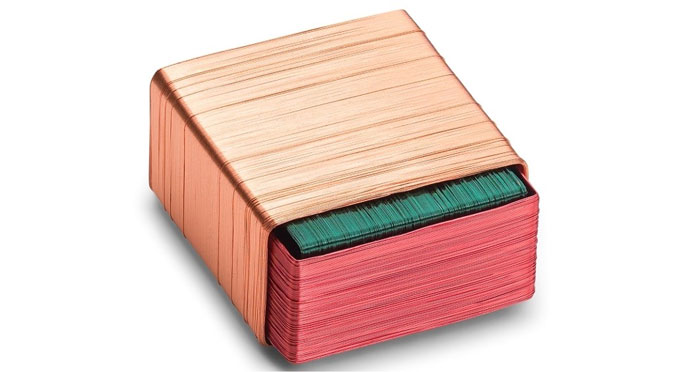The preparation of super-tiny wires to produce inductive parts and maintain a steady connection within minute medical devices necessitates the interaction of state-of-the-art technology and precision skill. The micro-coil manufacturing parameters basically depends on its application purpose. The selection of the material of the miniature coils is an important parameter because it solely depends on the usage of the coil. Manufacturers use different types of materials to prepare miniature coils such as aluminum, copper, stainless steel, titanium, gold, etc. Different materials come with different characteristics and provide different sets of benefits.

In this article, we will discuss the materials that manufacturers generally use to manufacture miniature coils.
Stainless Steel:
The main use of stainless steel made micro coils is related to heating purposes. They are heat and rust-resistant. In addition, they are strong, sturdy yet lightweight and you can recycle them after use. In the medical sector, stainless steel made micro coils are used in cryotherapy treatment of cancer to defrost the frozen cancerous tumors.
Copper:
The conductivity level of copper is next to silver, which made it the 2nd most conductive substance in the globe. Because of its superb physical attributes, the use of copper in the medical sector is widespread. Copper, as a material, is very much steadfast and durable. So, along with using copper, the use of copper alloys are also very common in making micro coils for medical purposes.
In many cases, copper wires come with a coating. However, the nature of the coating depends on its application purpose.
Aluminum:
In many cases, carrying and transferring a portable medical device becomes a hectic job due to its heavy weight because of more turns in coils inside the device. And that is where aluminum coils come in. The primary use of aluminum coils is mainly directed to reduce the weight of portable medical devices. Moreover, the cost of aluminum is not much expensive. So, an aluminum coil made medical devices are low in weight and price.
Gold and Platinum:
The use of micro coils made by gold or platinum is very rare. Gold or platinum made coils have high conductivity and strong resistance power against chemicals. When there is a requirement for miniature medical devices to come to direct contact with skin or tissue, then the devices need to meet the biocompatibility guideline of the FDA. In those cases, manufacturers use materials like gold and platinum to make micro coils. The use of expensive materials makes these medical devices more costly and reduces its usage.
Titanium:
Titanium or titanium alloy made micro coils are highly resistant to corrosion. Titanium made coils are lightweight, non-magnetic, and extremely high in metallic strength. These qualities make titanium and titanium alloy made micro coils highly used for medical and dental scenarios.
Final thought:
The innovation of micro coils is no-doubt made medical operations easy and more effective. And the use of different materials has surely diversified its application. It is highly possible that in the future, the use of miniature coils will be increasingly widespread.


Comment Policy
Your words are your own, so be nice and helpful if you can. Please, only use your REAL NAME, not your business name or keywords. Using business name or keywords instead of your real name will lead to the comment being deleted. Anonymous commenting is not allowed either. Limit the amount of links submitted in your comment. We accept clean XHTML in comments, but don't overdo it please. You can wrap code in [lang-name][/lang-name] tags.